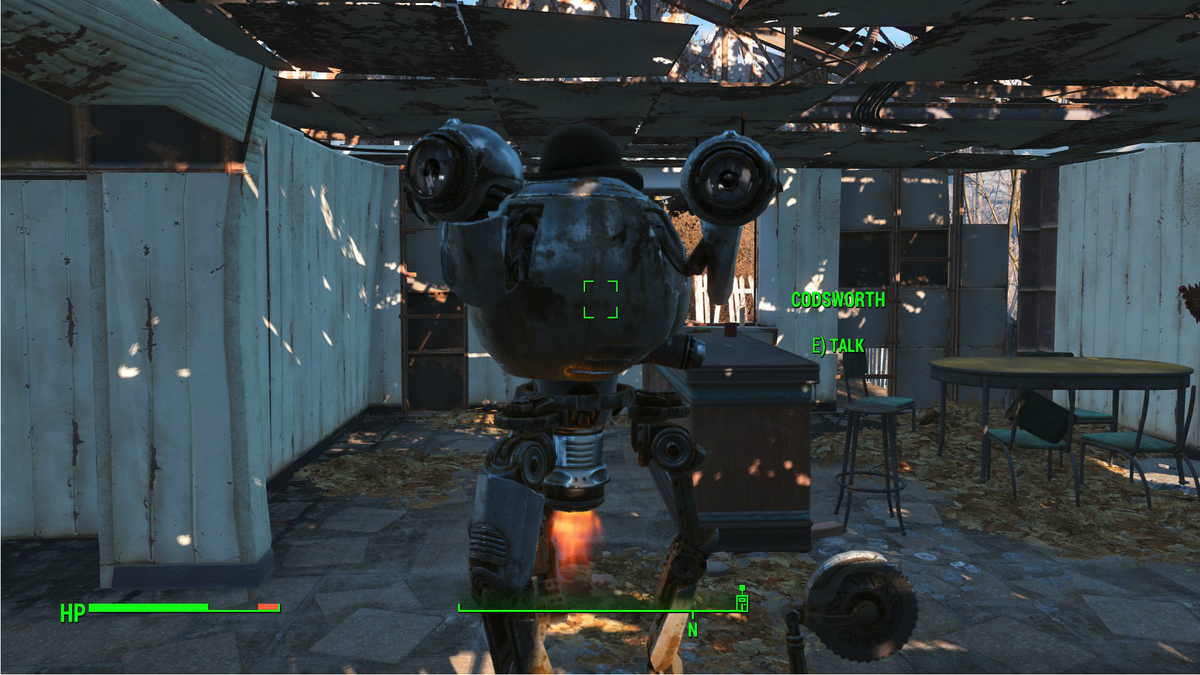LOOT would crash when trying to detect a game installed to a location in which the user does not have read permissions, now such games are treated as not being installed. Plugins with non-ASCII description text would cause codecvt to wstring errors. LOOT would accept any file with a.esp or.esm extension as a plugin. It now checks more thoroughly, by attempting to parse such files' headers. Fallout 4 is a huge game, and it doesn't always do the best job explaining things you ought to know. Here's a wiki guide to 11 things Fallout doesn't clearly tell you at first, but probably should.
- Fallout 4 Loot Not Working Xbox 360
- Fallout 4 Loot Not Working On Computer
- Fallout 4 Loot Not Working Item
For Fallout 4 on the PC, a GameFAQs message board topic titled 'I'm patch 1.5 and loot lock is not working'. For Fallout 4 on the Xbox One, a GameFAQs message board topic titled 'Loot-lock trick isnt working for me at all.'
LOOT is a plugin load order optimiser for TES III: Morrowind, TES IV: Oblivion, TES V: Skyrim, TES V: Skyrim Special Edition, Skyrim VR, Fallout 3, Fallout: New Vegas, Fallout 4 and Fallout 4 VR. It is designed to assist mod users in avoiding detrimental conflicts, by automatically calculating a load order that satisfies all plugin dependencies and maximises each plugin’s impact on the user’s game.
LOOT also provides some load order error checking, including checks for requirements, incompatibilities and cyclic dependencies. In addition, it provides a large number of plugin-specific usage notes, bug warnings and Bash Tag suggestions for Wrye Bash.

While LOOT is able to calculate correct load order positions for the vast majority of plugins using only their content, it cannot do so for all plugins. As such, LOOT provides a mechanism for supplying additional plugin metadata so that it may sort them correctly. An online masterlist is provided to supply metadata for many plugins that need it, while users can make their own metadata additions, which are saved in their userlist.
LOOT is intended to make using mods easier, and mod users should still possess a working knowledge of mod load ordering. See Introduction To Load Orders for an overview.
LOOT is a plugin load order optimiser for TES IV: Oblivion, TES V: Skyrim, Fallout 3, Fallout: New Vegas and Fallout 4. It is designed to assist mod users in avoiding detrimental conflicts, by automatically calculating a load order that satisfies all plugin dependencies and maximises each plugin’s impact on the user’s game.
LOOT also provides some load order error checking, including checks for requirements, incompatibilities and cyclic dependencies. In addition, it provides a large number of plugin-specific usage notes, bug warnings and Bash Tag suggestions for Wrye Bash.
While LOOT is able to calculate correct load order positions for the vast majority of plugins using only their content, it cannot do so for all plugins. As such, LOOT provides a mechanism for supplying additional plugin metadata so that it may sort them correctly. An online masterlist is provided to supply metadata for many plugins that need it, while users can make their own metadata additions, which are saved in their userlist.
LOOT is intended to make using mods easier, and mod users should still possess a working knowledge of mod load ordering.
See the article Introduction To Load Orders for an overview.
Installation & Uninstallation
LOOT requires Windows 7 or later.
Official versions of LOOT can be installed either using its automated installer or manually. To install LOOT manually, extract the downloaded archive to a location of your choice (use 7-Zip, WinRAR or WinZip to extract the .7z archive). If LOOT was installed using the installer, then use the uninstaller “unins000.exe” to uninstall LOOT. If LOOT was installed manually:

- Delete the files you extracted from the location you chose.
- Delete the LOOT folder in your local application data folder, which can be accessed by entering %LOCALAPPDATA% into Windows’ File Explorer.
Using LOOT
Installation

When LOOT is run, it will attempt to detect which of the supported games are installed. If a default game has been set, LOOT will run for it, otherwise it will run for the same game as it last ran for. If the relevant game cannot be detected, or if there is no record of the last game LOOT ran for, it will run for the first detected game.
LOOT can also be launched with the –game=<game folder name> command line parameter to set the game to run for. If the supplied game folder name is valid, the default and last game values are ignored. The default folder names are Oblivion, Skyrim, Fallout 3, FalloutNV and Fallout 4.
If LOOT cannot detect any supported game installs, it will immediately open the Settings dialog. There you can edit LOOT’s settings to provide a path to a supported game, after which you can select it from the game menu.
Once a game has been set, LOOT will scan its plugins and load the game’s masterlist, if one is present. The plugins and any metadata they have are then listed in their current load order.
If LOOT detects that it is the first time you have run that version of LOOT, it will display a First-Time Tips dialog, which provides some information about the user interface that may not be immediately obvious.
Fallout 4 Loot Not Working Xbox 360
Download:
Fallout 4 Loot Not Working On Computer
LOOT v0.9.2 – Installer-5310-0-9-2.7z 24.2 MB
Fallout 4 Loot Not Working Item
Credit: wrinklyninja